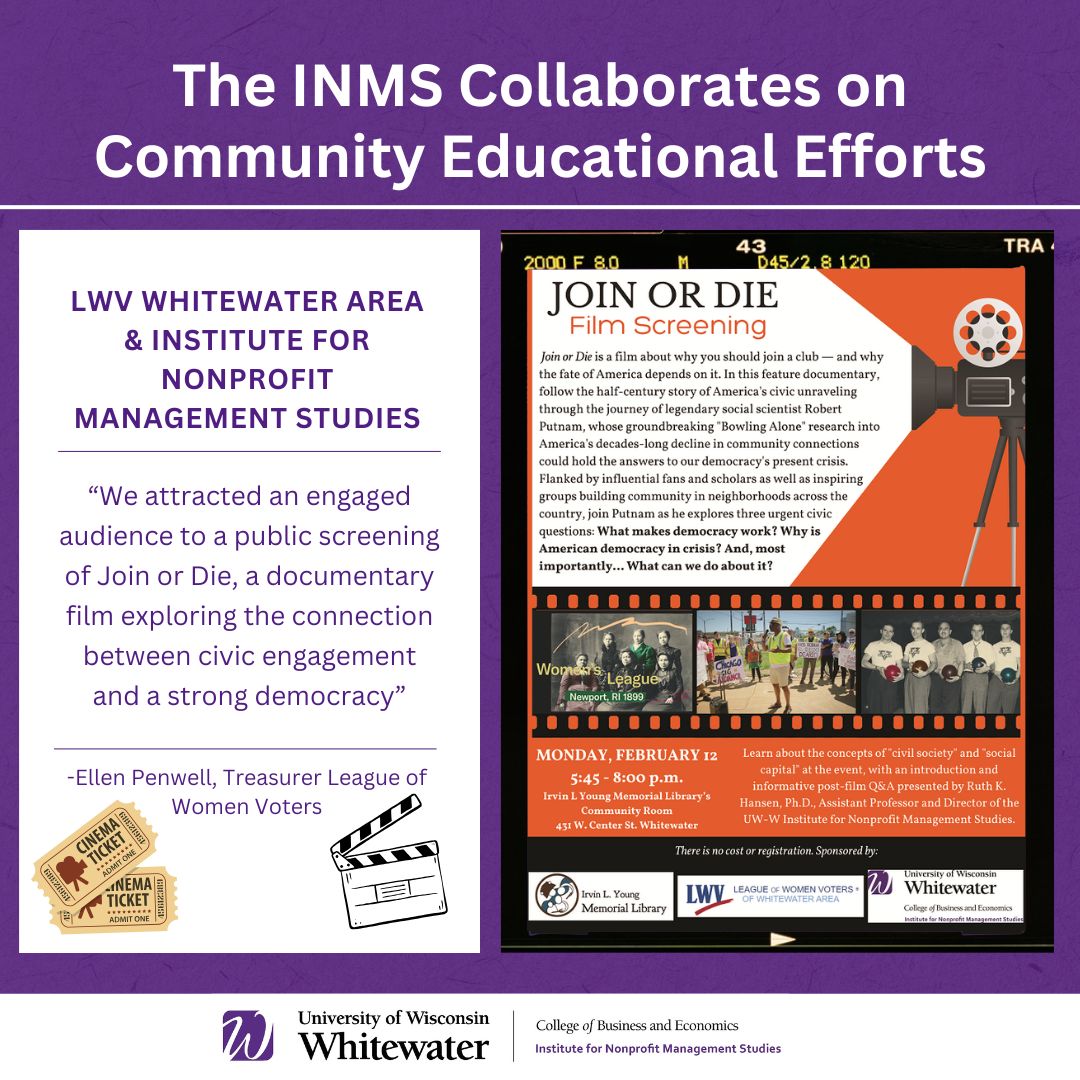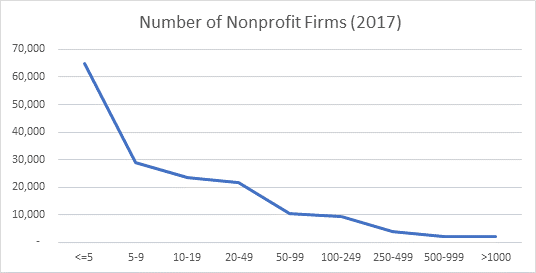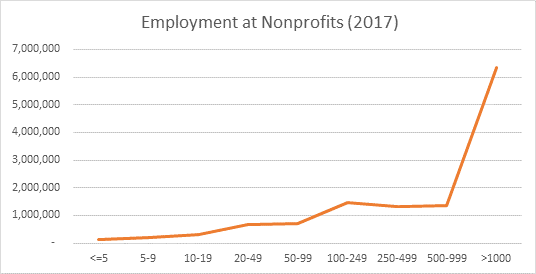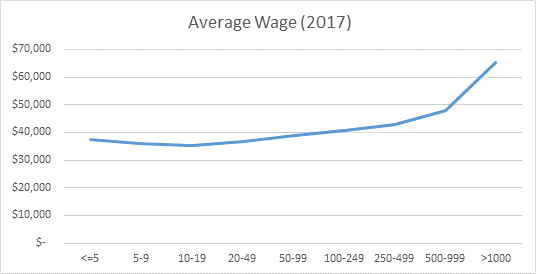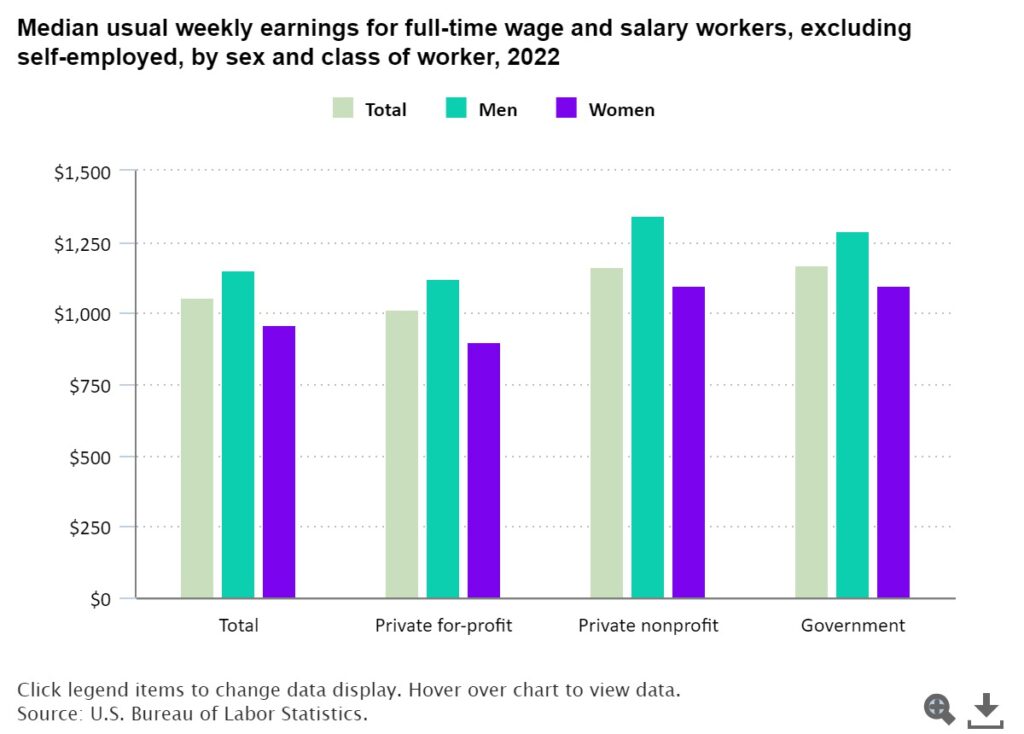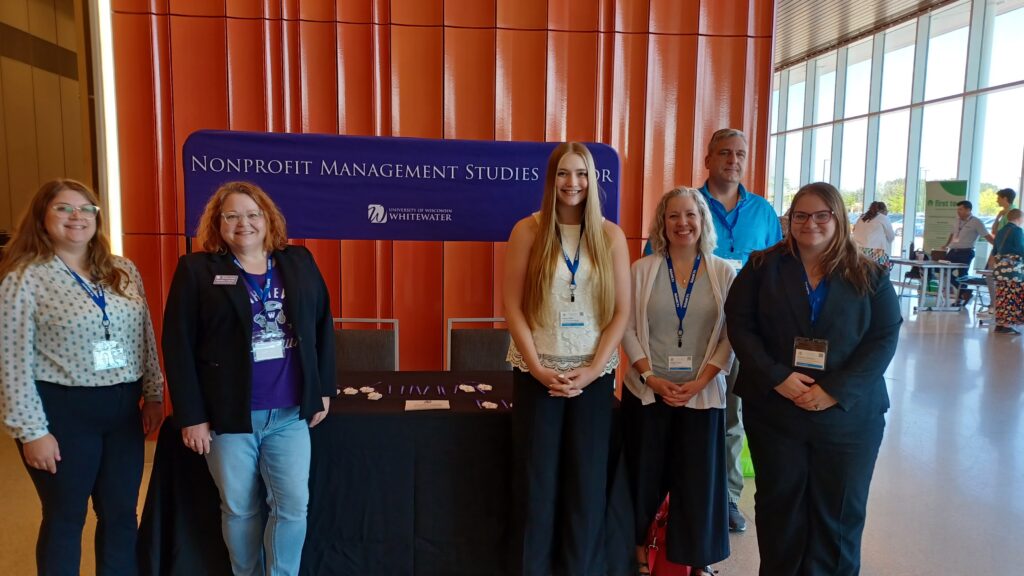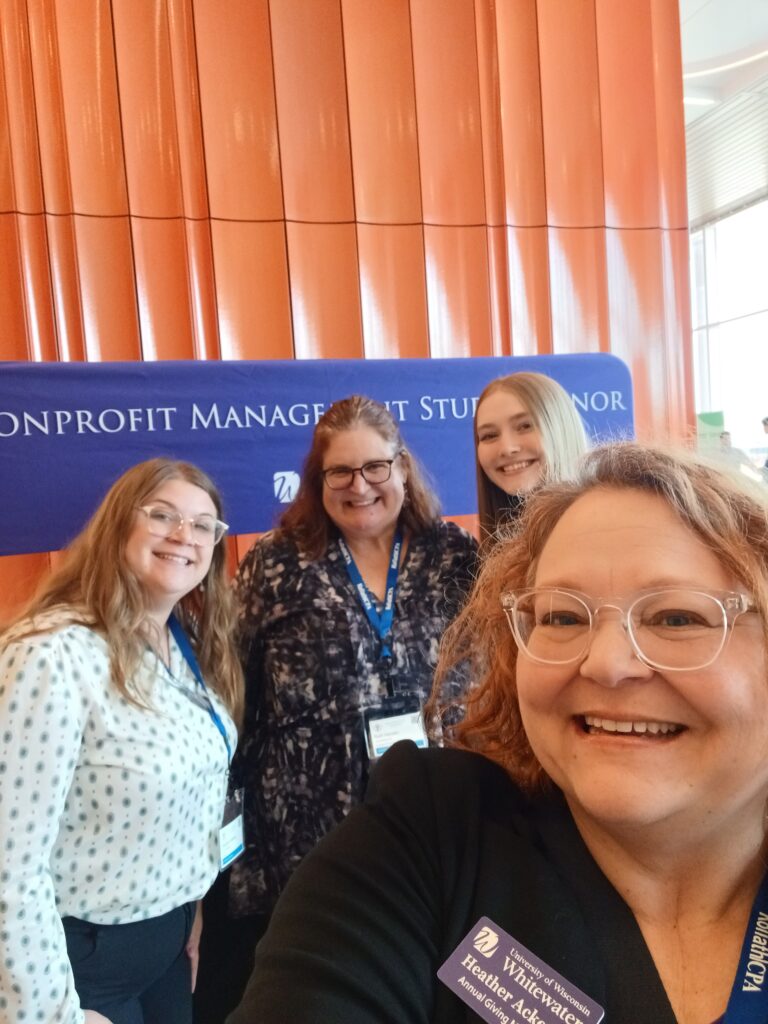I’ll be honest: I probably think a lot more about nonprofit revenues than the average person. While federal grants to nonprofits such as arts organizations, research universities, comprehensive colleges and universities, and human services organizations are often publicized, it’s rare that they gain much notice, let alone make national and international headlines.
I happen to spend a lot of time thinking about nonprofit revenue portfolios. So given the current interest in payments from the federal government to a nonprofit organizations, I decided that it was time for a post about government grants and contracts. I worked with similar grants for charitable organizations for more than a dozen years in my capacity as a fundraiser. I have served as a reviewer for state and federal grants. Now I study and teach about nonprofit management, fundraising, and the limits of people’s willingness to help others.
More Common Than You May Think
Government grants and contracts account for an average of one third of nonprofit revenues in the US – the second most important source of nonprofit revenue, behind fees for service. Private philanthropy provides approximately 14% of nonprofit revenues to the sector as a whole (National Council on Nonprofits, 2019).
What Does it Get Used For?
Every dollar of government support is money that has been allocated, usually by congress or state legislatures, to address specific goals for the public benefit. These nonprofit organizations are doing work our elected representatives have decided is important. There is a high degree of transparency about how the money is used, with reporting back to the government and to the public.
Can Federal Money Fund Religious Organizations?
There’s a difference between a church and a religiously affiliated organization. Federal money will not fund churches for programs that are worship, or propagating a faith. Religious congregations rely almost entirely on philanthropy for their revenue – more charitable dollars go to support religion than any other category of organization (Giving USA, 2024).
Many religious denominations have teachings that instruct the faithful to care for others. It’s not surprising that many human services, health, and education organizations have roots in religious traditions, but they are still human services, health and education organizations. When their activities match a goal identified by government – such as providing counseling to domestic abuse victims, administering a program such as assistance with utilities, or providing academic support to students who are from low to moderate income backgrounds – their religious ties are not a barrier to receiving government funding.
Is There Oversight?
Large nonprofits have organizational audits, release annual reports, and file informational returns with the IRS that are publicly available. Federal grants sometimes also have their own audits as part of the regular process. A negative finding in the audit can affect the organization’s ability to receive federal funds in the future.
Is Fraud Likely?
The process is one with a great deal of transparency. Staff of the granting agencies, the nonprofit organizations, and the IRS all take great care with the taxpayer money that our elected representatives decided should be used to benefit the public. Better yet, there are processes in place to dissuade, discover, and remedy any improper use. While fraud can happen, the individuals involved can face jail time, and there is the potential loss of future federal funding for the organization.
Conclusion
So the federal grant process is an unlikely venue for money laundering. However, if your goals include relieving human suffering, promoting health, supporting vulnerable populations, improving education, or advancing research — then federal grants to nonprofit organizations are a good, process- and kid-tested, mother-approved, approach to addressing some of the most important issues facing American society.
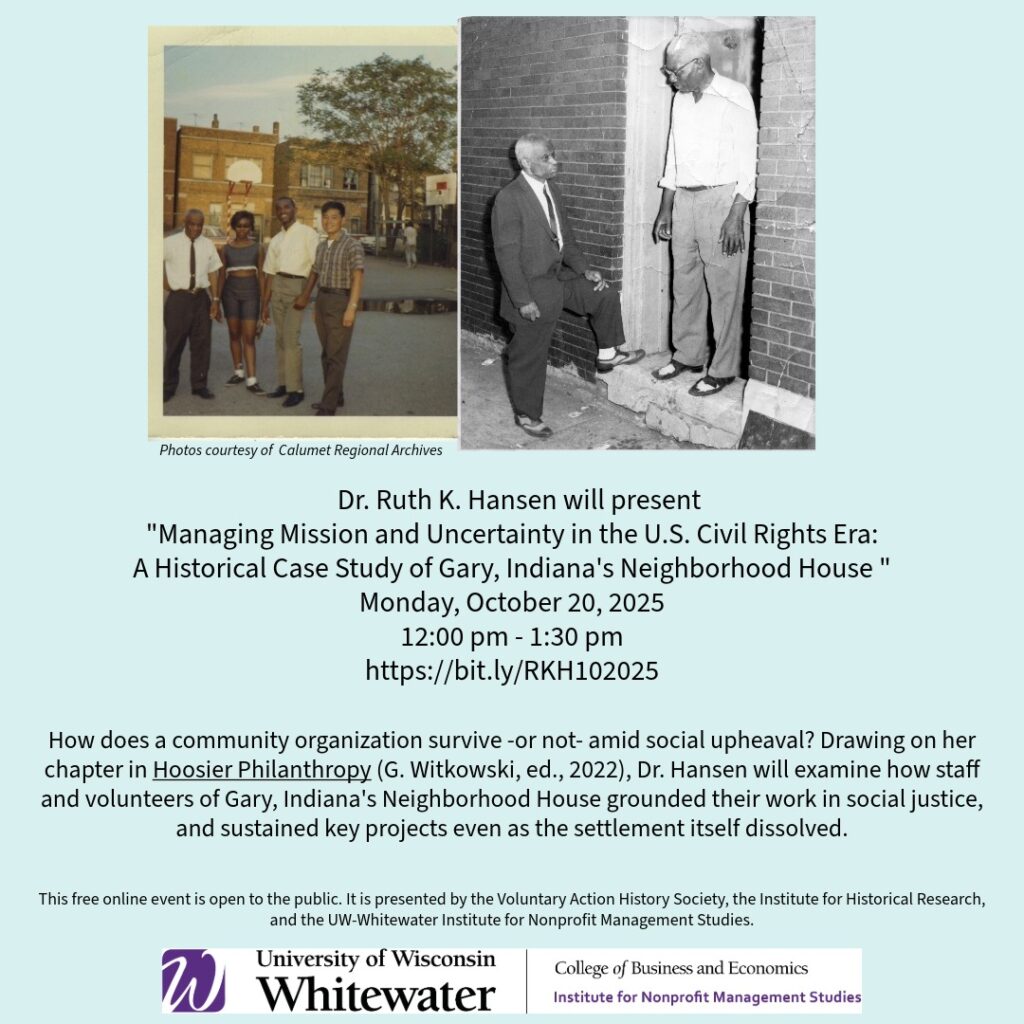
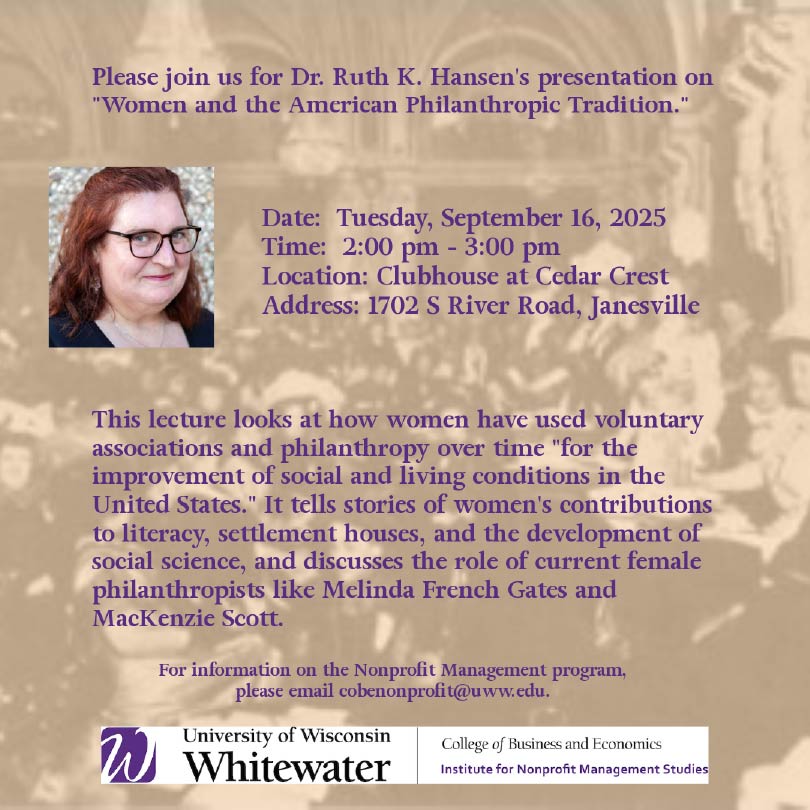
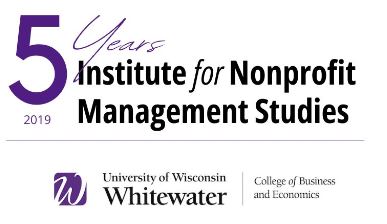 In 2023/2024, the Institute for Nonprofit Management Studies (INMS) partnered with these organizations and more: United Way of Jefferson & North Walworth Counties, Whitewater Area League of Women Voters, Janesville Choral Union, Friends of the Effigy Mounds, Wisconsin local & regional arts organizations, University of Wisconsin – Parkside, and University of Delaware.
In 2023/2024, the Institute for Nonprofit Management Studies (INMS) partnered with these organizations and more: United Way of Jefferson & North Walworth Counties, Whitewater Area League of Women Voters, Janesville Choral Union, Friends of the Effigy Mounds, Wisconsin local & regional arts organizations, University of Wisconsin – Parkside, and University of Delaware. 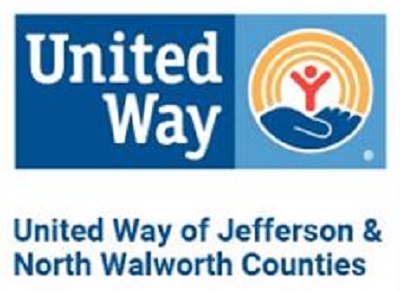 “Over the past couple of years, the collaboration between the INMS and the United Way of Jefferson & North Walworth Counties has resulted in the development of targeted training programs, resource-sharing initiatives, and joint funding opportunities, significantly enhancing the operational capacity and community impact of local nonprofits. Their combined efforts have increased organizational efficiency and fostered a more connected and resilient nonprofit sector in the region.” – Elizabeth Ellis-Bols, Director, United Way of Jefferson and North Walworth Counties
“Over the past couple of years, the collaboration between the INMS and the United Way of Jefferson & North Walworth Counties has resulted in the development of targeted training programs, resource-sharing initiatives, and joint funding opportunities, significantly enhancing the operational capacity and community impact of local nonprofits. Their combined efforts have increased organizational efficiency and fostered a more connected and resilient nonprofit sector in the region.” – Elizabeth Ellis-Bols, Director, United Way of Jefferson and North Walworth Counties “The LWV Whitewater Area benefitted greatly from its partnership with the Institute of Nonprofit Management Studies in February 2024. By joining resources, we attracted a strong audience to a public screen of Join or Die, a documentary film exploring the connection between community engagement and a strong democracy.” – Ellen Penwell, Treasurer, League of Women Voters Whitewater Area
“The LWV Whitewater Area benefitted greatly from its partnership with the Institute of Nonprofit Management Studies in February 2024. By joining resources, we attracted a strong audience to a public screen of Join or Die, a documentary film exploring the connection between community engagement and a strong democracy.” – Ellen Penwell, Treasurer, League of Women Voters Whitewater Area